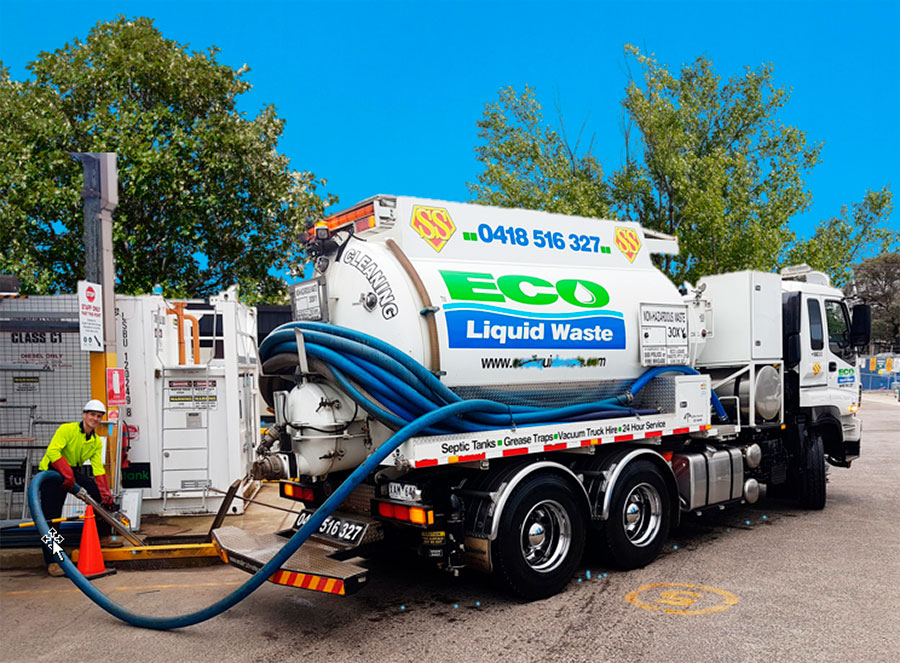The Reclaim Waste Diaries
The Reclaim Waste Diaries
Blog Article
The 5-Second Trick For Reclaim Waste
Table of Contents7 Easy Facts About Reclaim Waste ExplainedSome Known Details About Reclaim Waste The 7-Minute Rule for Reclaim WasteLittle Known Facts About Reclaim Waste.Some Known Questions About Reclaim Waste.
Domestic sewage waste refers to the waste and items from a domestic septic container. The appropriate monitoring and disposal of domestic sewer waste need fluid waste to be transferred to a sewer therapy plant where the proper techniques and equipment are applied to detoxify and dispose of waste.
Industrial waste usually includes potential hazards, such as flammable materials or a blend of fluid and solid waste products, and calls for an extra advanced and in-depth disposal procedure. The disposal of commercial waste normally involves the filtering of waste before transport to make certain safe and appropriate disposal. Hazardous waste is created from byproducts and overflow of industrial procedures and production.
This kind of waste can not use the very same sewage management transportation or procedures as septic or industrial liquids. The hazardous waste monitoring procedure requires the assessment and screening of fluid waste prior to it undertakes the disposal process (liquid waste removal). Drainage waste is the fluid waste that originates from drainage and excess stormwater in extremely populated locations or cities
Runoff waste can cause contamination and flooding if not handled properly. Discover more about sewage system cleansing and waste monitoring. Ensuring appropriate waste monitoring can stop catastrophes and reduce ecological injury. Both individuals in residential settings and specialists in industrial or production sectors can profit from comprehending the procedures and laws of liquid waste administration.
Top Guidelines Of Reclaim Waste
Call PROS Services today to find out about our waste administration and disposal services and the correct means to care for the liquid waste you create.
(https://www.twitch.tv/reclaimwaste1/about)Do you understand what takes place to your water when you end, purge the bathroom or drain the cleaning device? No? Well, it's worth understanding. This so-called 'wastewater' is not only a vital source but, after treatment, will certainly be released to our land, waterways or the ocean. Made use of water from bathrooms, showers, bathrooms, kitchen sinks, washings and commercial processes is referred to as wastewater.

water used to cool machinery or clean plant and equipment). Stormwater, a type of wastewater, is drainage that flows from farming and urban locations such as roofing systems, parks, yards, roads, paths and rain gutters right into stormwater drains pipes, after rain. Stormwater streams neglected straight to local creeks or rivers, ultimately reaching the ocean.
Reclaim Waste - Questions
In Queensland, a lot of wastewater is dealt with at sewer therapy plants. Wastewater is transferred from domestic or commercial sites via a system of sewage systems and pump terminals, referred to as sewage reticulation, to a sewer treatment plant. City governments develop, keep and run most sewer therapy plants. Operators are certified under the Environmental Protection Act 1994 to discharge treated wastewater at an appropriate environmental requirement into rivers.
The Department of Natural Resources advises local federal governments regarding managing, operating and keeping sewage systems and treatment plants. In unsewered locations, city governments may require householders to mount individual or home sewage therapy systems to treat residential wastewater from commodes, kitchens, shower rooms and washings. The Department of Natural Resources authorizes the usage of family systems when they are confirmed to be efficient.
In some brand-new class, treatment of some stormwater to remove litter, sand and crushed rock has started making use of gross pollutant traps. Wastewater therapy takes place in 4 stages: Eliminates solid matter.
Wastewater then streams into huge tanks where solids settle and are eliminated as sludge. Oil and residue are skimmed from the surface. Makes use of small living microorganisms referred to as micro-organisms to break down and get rid of staying dissolved wastes and fine fragments. Micro-organisms and wastes are incorporated in the sludge. Removes nitrogen and phosphorus nutrients that could trigger algal blossoms in our waterways and intimidate water life.
Fascination About Reclaim Waste
Nutrient elimination is not offered whatsoever sewage treatment plants because it requires expensive specialised tools. It is coming to be more common in Queensland. Clear liquid effluent generated after treatment may still include disease-causing micro-organisms. If this effluent is released right into waterways such as rivers or the sea, the micro-organisms will eventually pass away out.

This typically implies wastewater needs to be dealt with or pollutants eliminated before it can be released to waterways. Most wastewater moves right into the sewage system. Under the Act, regional governments carry out approvals and permits for ecologically relevant tasks (ERAs) including wastewater releases that may have a local effect. The department carries out approvals and licences to ERAs involving wastewater releases that could have a regional or statewide influence.
Little Known Questions About Reclaim Waste.
Or else, samples are taken for lab evaluation. Typically numerous tests are needed to develop the degrees of each of the various pollutants such as oils, heavy metals and chemicals in water. Surveillance provides factual information regarding water high quality and can verify that permit problems are being met. The information obtained through tracking supplies i loved this the basis for making water high quality choices.
Report this page